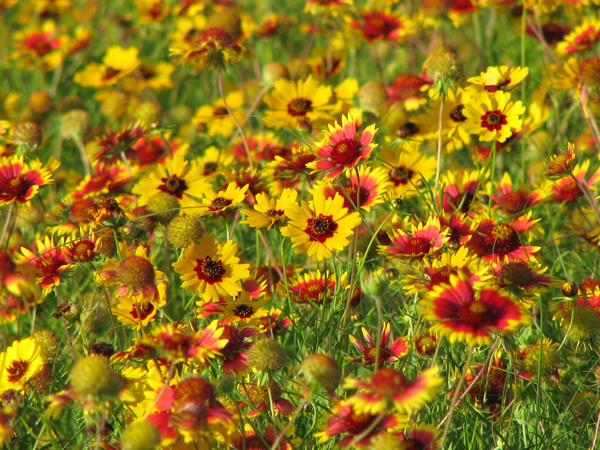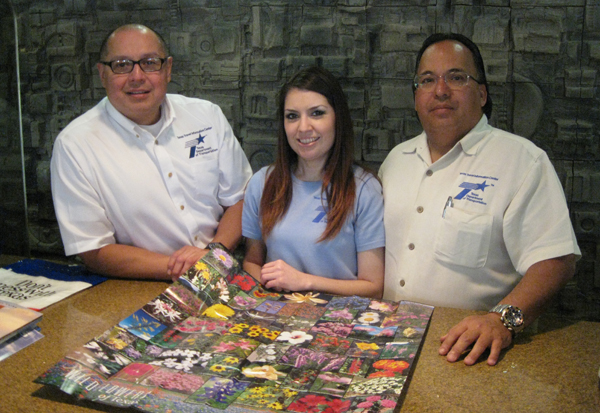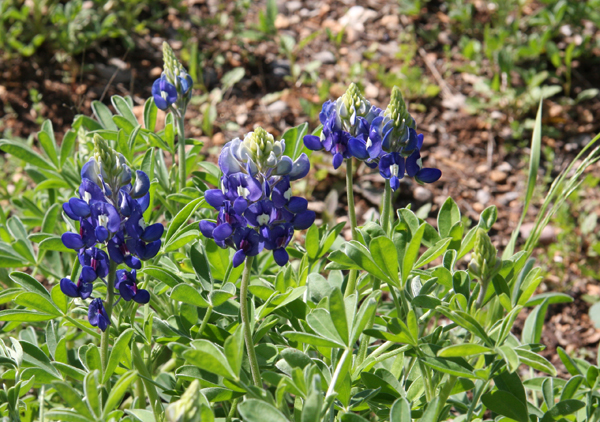- La Feria Community Holds Succesful Business Mixer Event
- Little Nashville to Take Place in Downtown Mercedes
- Lions Basketball Captures District Gold
- La Feria ISD Students Compete in Regional Chess Tournament
- Lions End First Half of 32-4A on a High Note
- La Feria ISD Held Another Successful Parent Conference
- Strong Appearance for Lions at Hidalgo Power Meet
- LFECHS Students Get to Meet Local Actress
- Students Participate in Marine Biology Camp
- Two LFECHS Students Qualify for All-State Band
Texas Highways in Full Bloom
- Updated: April 24, 2015
Mother Nature’s Fabulous Wildflower Show

Bill Keltner
If you thought last year was a wonderful year for seeing the overwhelming beauty of the wildflowers that traditionally burst out along Texas highways each Spring—Well, pardner, this year’s wildflower extravaganza is even more fabulous than ever.
“It is one of the best in many years,” according to many who have traversed our highways, especially those who have passed through the Hill Country. They attribute the dazzling display to the abundance of rain and favorable weather.
A good starting point for your expedition into the fields of wildflowers is at your local Texas State Information Centers—you’ll find them Valleywide. The folks there are informed and are as enthusiastic about this year’s bumper crop of native wildflowers as those who have reported them.
The Texas Travel Information is under the Travel Division of the Texas Department of Transportation in Austin, Texas and provides the up-dated information as a public service. They also provide maps, guide materials, and good advice for the best places.

Beauty along Texas highways. Photo: Texas Wildflowers group/flickr.com
You don’t have to drive far to start seeing the treasure of spectacular wildflowers gracing the highways just north of Raymondville. You’ll quickly begin to see what everyone is talking about. Drivers will find the first signs of this year’s bumper crop beginning north of Raymondville and running through the Yturria ranch and Sarita on Highway 77. It will take a couple of hours, but well worth it. And, if you have the time, it gets even better as you venture more northward. Some of the best areas to visit are in the hill country of Texas. The Johnson City, Fredericksburg, New Braunfels areas are right now coming into their peak display of the famous Texas Bluebonnets.
With its sprawling size and diversity of terrain, ranging from mountains to tropical climates, Texas offers a true treasure trove of natural beauty for residents and visitors alike. Studies show that more than 5,000 species of flowering plants are native to Texas. This abundance results from an exceptional multitude of plant habitats and weather conditions.

Beauty along Texas highways. Photo: Texas Wildflowers group/flickr.com
Long-time Texans will remember the pioneer work of the wife of President Lyndon B. Johnson in the 1960s. Her name was Lady Bird Johnson. That tenacious lady spearheaded a campaign to beautify Texas highways. The state is still benefiting from her efforts. That is why, even today, some of the more spectacular spreads of wildflowers in the state are around Johnson City and the upper Hill Country region of Texas.
One could say that Texas is the nation’s largest gardener. All along the Texas highway system lie more than 700,000 acres of highway right of way. The Texas Department of Transportation cares for every acre. Landscape architects sculpt it. Maintenance personnel mow it, fertilize it and groom the roadsides and highway medians. They sow tons of wildflower seed annually. They also plant attractive species such as Crepe Myrtles along the roads. There is a good display of these on US 77 north of Paris, TX

Besides the beauty the work provides, the years of beautification experience have yielded valuable knowledge. For instance, the most effective roadside horticulture mimics what nature does.
They have found that planting single species (Bluebonnets, Indian Paintbrushes or Verbena, for example) don’t do well alone. That is why the traveler sees natural combinations of grasses and other legumes mixed in with the wildflowers. This subtle symbiosis seems to encourage all species to do better. They complement each other.
If the reader is really into checking out this peak year for wildflowers, there is a web-site with a link at www.tourtexas.com for all the latest sightings. It will soon be over until next year.
Oh, yes, one final caveat from the folks at the travel center: Be advised that rattlesnakes also like wildflowers for cover. So, be careful about where your feet are when you take pictures.
The flowers are there to enjoy. “Look, but don’t touch – that is, don’t pick them to take home to Aunt Tillie and Uncle Fred. Help preserve the flowers for next year’s visitors.
So, thus armed, mount up and head out to the waiting fields of Texas Wildflowers and enjoy!


